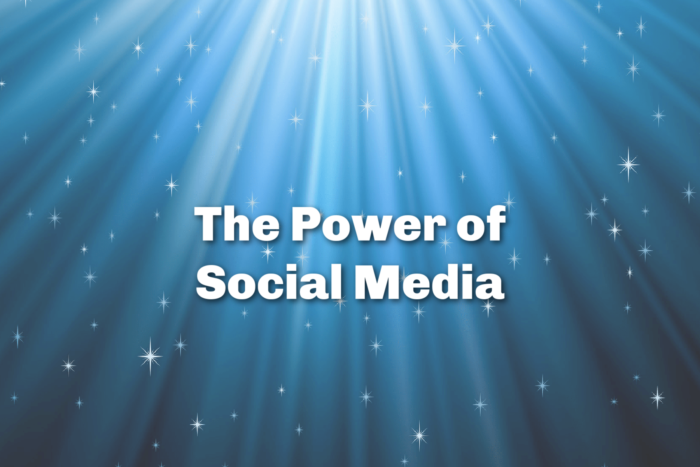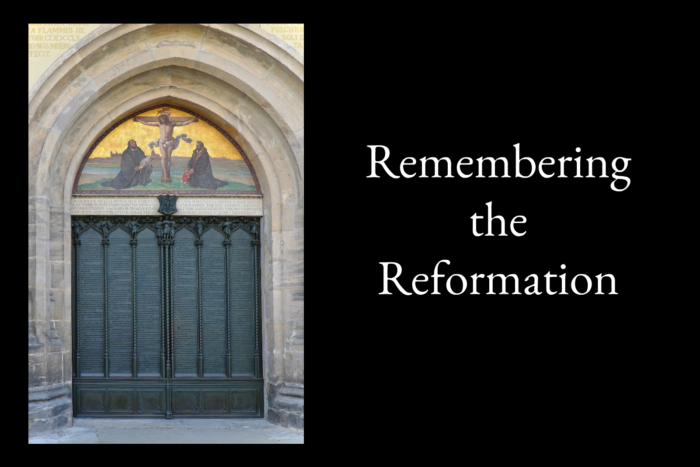Last night at 12:22am, our phone rang. It jarred me out of a very deep sleep and my heart started pounding. It’s not usually a good thing when the phone rings at night and my thoughts went immediately to our parents. It ended up being an automated call about our company’s security system (at 12:22am!) and I started to breathe easily again. But it took a long time for my heart to stop pounding and my brain to slow down.
A few hours later, we woke up to a short beep. We looked around, couldn’t figure it out, and closed our eyes. We were just about back to sleep when we heard it again. It seemed to be coming from my nightstand. I decided it must be some kind of low battery signal from my alarm clock. I unplugged the clock and we settled down for a couple of more hours of sleep. But, no. There it was again! At this third beep, I flew out of bed, turned on the light, and examined my table. Finally, my husband said he thinks it’s the phone. The cordless phone (which I had answered at 12:22am) had lost its charge and was begging to be put back in its cradle. How it lost its charge in just a few short hours is a mystery. That particular phone rarely leaves its cradle and was sitting on it when I answered during the night.
Those rude awakenings made for a rough night of sleep. No wonder I feel so tired this morning.
Those sleep interruptions remind me of the life we are living now. We so badly want to go back to our normal ordinary living but we keep getting jarred awake by discouraging and often nonsensical happenings. We will live for a few days–perhaps even a week or two–and we can forget how much the world has changed. But then something vividly reminds us.
I wrote parts of what you will read below on Facebook the other day, but decided to expand here as many of you are not on Facebook and, also, because I did not include or expand on certain things due to space. I want to warn you that this first part is going to be somewhat discouraging but just keep reading. It gets better.
As we catch bits and pieces of news these past days, we see many disturbing things. In America, It seems like almost every day we hear of laws that will strip us of our rights. We hear of terrible things happening at the borders. We hear of people dying from Covid and from the vaccine. And we hear about supply shortages and higher expenses. Meanwhile the government is throwing money it doesn’t have at its citizens to pacify them. This can’t end well.
There are perhaps even more disturbing happenings from across the world, where we hear of extreme lockdown measures that continue to keep people from traveling even within their own countries. There are massive protests across Europe about these lockdowns, which we never hear about in the mainstream news. A pastor in Canada was recently released from a five week stay in jail for his church’s in-person meetings against his province’s health guidelines. And then there are the reports coming from Israel that there is “medical apartheid” going on. If you aren’t vaccinated, you are viewed as Enemy #1 and with their newly instated “green pass”, only the vaccinated are allowed to eat at restaurants indoors, go to events, and even shop in some stores. Many of their citizens have been forced to be vaccinated or lose their jobs. Now keep in mind–this is over a virus that has a death rate that is actually less than 4% (and that death rate has been falsified in so many ways and with the falsifications being proven by so many different studies and reports that it is hard for any thinking person to deny it.) There’s much more going on in this world. But that’s enough.
Not only is the world in chaos but the church at large is also in major chaos. Here in America, we read of a famous “Christian” singer who was recorded shouting obscenities at his son. We see an ugly debate over a recent Christian book and the promotion of Bethel by a much trusted Christian. The promotion of wokism and social justice in Baptist and other once-solid churches is now the norm. The church has been on a bad trajectory for quite awhile but it has taken on warp speed. Why does it matter what is happening to the American church? I believe it is because she has been a beacon of the Christian faith in this world for many years. It has been she who has sent thousands of missionaries across the world and it is she who has been one of Israel’s greatest supporters. As this American church weakens and is overtaken by apostasy, so the darkness won’t only increase in America, but across the world. (Did you know that many mission organizations aren’t even sharing the Gospel anymore? Or if they do it is as an “add-on” to the person’s current religion? There is much going on in the world of missions. Be careful whom you support.)
What is especially interesting to see is the efforts to draw all people into a one world religion (which we have been told is coming in Revelation 13), with many once-trusted figures joining with false teachers or promoting false doctrine. I recently saw a “Christian” company who is re-making their company with an emphasis on Buddhism, while still claiming to be Christian. I’ve heard of “Christian” pastors and teachers joining with Islam. In fact, it is so common that it’s been given a name: “Chrislam”. There is just so much wrong with the modern day mainstream church across the world. What I have written is just a glimpse into all that’s going on.
But let me encourage you! As the American church has weakened, the true church in other countries is growing. Oftentimes, this is happening in countries where there is much persecution and cost for being a believer. The true church is still so wonderfully alive and well and will always remain so until the Lord returns for her. Yes, she will be small but perhaps we are simply gaining a new understanding of Matthew 7:13-14? Our Lord told us the gate is narrow and few there will be that find it.
Then there are weather events. Did you know that last year in America there were 16 ‘one-billion dollar’ weather events? This means that insurance companies had to pay out at least one billion dollars in coverage. There are usually under ten per year. And this year the Texas freeze has already been a three billion dollar event. So not only is the world going crazy, so is the weather. And that’s just in America. This pattern continues across the world, with an increase in hurricanes, volcanic activity, and earthquakes. The official data shows this increase in activity. I think we can all agree that the weather has seemed to sense the mood of the earth. We hear that it’s global warming causing all this havoc. I tend to believe it is the beginning of the birth pangs as predicted in Matthew 24. Of course, I could be wrong. It’s just an observation.
Meanwhile, technology is exponentially increasing, making possible the mark of the beast as predicted in Revelation 13. One can easily see how the green pass in Israel and the mandatory chipping of employees in Sweden are stepping stones to the mark of the Beast. (Let me be clear: The vaccine is NOT the mark of the beast.) Yes, how they will make the mark of the beast possible is becoming just a little clearer with each passing day. Technology is also now available to see the two witnesses in live time from anywhere in the world through satellites. Anything that we thought was impossible forty or fifty years ago when we read Revelation is now possible. It’s mind-blowing when you really stop to think about it.
And then, finally, the last thing I want to touch on is globalism. I have thought for many years now that it would be quite impossible to have a one world government with a strong America. I believe that we are watching the intentional take-down of this country. I do not say this lightly. The evidence is clearly there. This, along with the failing economies of other countries around the world, will pave the way for a global government. They are already discussing it. Just look up the World Economic Forum and read some of their chilling plans.
I haven’t even mentioned the activity in the middle east that is lining up with scripture in a way that could only be supernatural.
It’s funny because I never really thought before 2020 of the many details and changes that would need to be put in place for the Revelation 13 scenario to come to the world. But now as we are living them, it makes so much sense. It’s not like you can just suddenly have a one world government, a one world religion, and a mark of the beast that is needed to buy and sell. These things can’t just happen instantly. There must be much happening in the years before that.
Now you may be saying to yourself right now “I don’t agree with you“. And I want you to know, first of all, that I am not trying to change your mind. I don’t think it will really matter what we believe about world happenings when the Lord returns. Second of all, I am so gladly willing to hear evidence to the contrary. I would gladly admit it if I am wrong. I simply ask you to do some research on your own before commenting with negative words to this post. Spend some time finding out about the vaccine from doctors who are losing their licenses and reputations to sound the alarm. Read a few news sources that are not carefully controlled. Dig into history to find out the background of current events.
To me–and I know to many of you, as well–it is so clear that the end is near. Everything the Bible predicted is either happening or being set up to happen.
How does one live in a world that is getting ready to end?
It can be tempting to fear and to be anxious. It is tempting to just withdraw and ignore.
And, honestly, I don’t pay much attention to the news anymore. I am not going to change what is happening by knowing about every detail. And we aren’t really getting real news anyway. At least not in America. We are getting a very scripted narrative.
Does anyone else find themselves hunkering down in the midst of all of this and just living a more simple life? One where family, work, and church are the main priorities?
That’s what I find myself doing. And, honestly, if it wasn’t for the wonderings and uncertainty of the future, I’d be happier for it. There is much to be said for the simpler life.
Actually, “hunkering down” is probably not the best term to use. I don’t mean that we shelter in our houses and don’t go out. I am referring more to a life where we invest in our families, treasure fellowship with like-minded believers, and have conversations that actually matter with both the unsaved and the saved. A life where we focus on what’s important.
Our families need us. They need us to be engaged and communicating and laughing with them. They need us to turn away from our phones and our TVs and our activities to love them and teach them about God and His Word.
Our church families need us. I have heard from several different people now how difficult it is to find people to serve in various ministries at local churches. This is so discouraging. We need to be actively serving as we wait for the Lord to come. This is not the time to back out of all of our church ministries.
Our communities need us. I spoke with a woman yesterday whose family is deeply hurting from this past year. Their extended families have been deeply affected economically by Covid and they are trying to help them. But they, themselves, had to take a 10% pay cut. It’s been a rough road to travel for them. I am sure her story could be told a million times over across the world. In fact, many are facing much worse things. Some are struggling to even eat. We need to support those who are hurting however we can. We need to boldly share the Gospel when we are given opportunity. We need to show God’s love in this harsh, harsh world.
It’s time for the alarms around us to wake us up to what’s important. It’s time to wake up to the fact that we are probably never going back to our old “normal”.
This reminds me of the verses from I Thessalonians 5:5-11—
You are all sons of light and sons of the day. We are not of the night nor of darkness. 6 Therefore let us not sleep, as others do, but let us watch and be sober. 7 For those who sleep, sleep at night, and those who get drunk are drunk at night. 8 But let us who are of the day be sober, putting on the breastplate of faith and love, and as a helmet the hope of salvation. 9 For God did not appoint us to wrath, but to obtain salvation through our Lord Jesus Christ, 10 who died for us, that whether we wake or sleep, we should live together with Him.
11 Therefore comfort each other and edify one another, just as you also are doing.
We mustn’t sleep as others do but watch and be sober. We are children of the day. Children of the light. And we must keep our eyes open and our armor on.
And don’t forget that one of these days we will be raptured! The Lord has promised that we will escape the wrath to come. We are not going to be here while the earth experiences the worst seven years in its history. Oh, praise the Lord for keeping His own from this terrible time.
Meanwhile, as we traverse the land of “limbo”, waiting for whatever is next, we need to make the best of it and appreciate what we have now. We need to be actively serving our Lord and sharing the Gospel. And we need to be sure we are growing deep roots of faith so that we can stand firm and face whatever may be ahead.
This is not the time to be resting and waiting. We need to be in the Word, learning who God is, learning to trust Him. Another thing that has been tremendously helpful to me is reading stories of missionaries and other Christians who have gone on before us. These are incredibly faith-building and are a wonderful reminder of God’s care and provision in the worst of times.
So hang on tight. It looks like we may be in for quite a ride. But let’s be sure to hang on to the right thing. Stuff will decay. People will let you down. Glory will fade. Only God and His Word are a sure anchor in the turmoil around us.
And so let us cling to Him alone. He will never fail us for He cannot fail.









